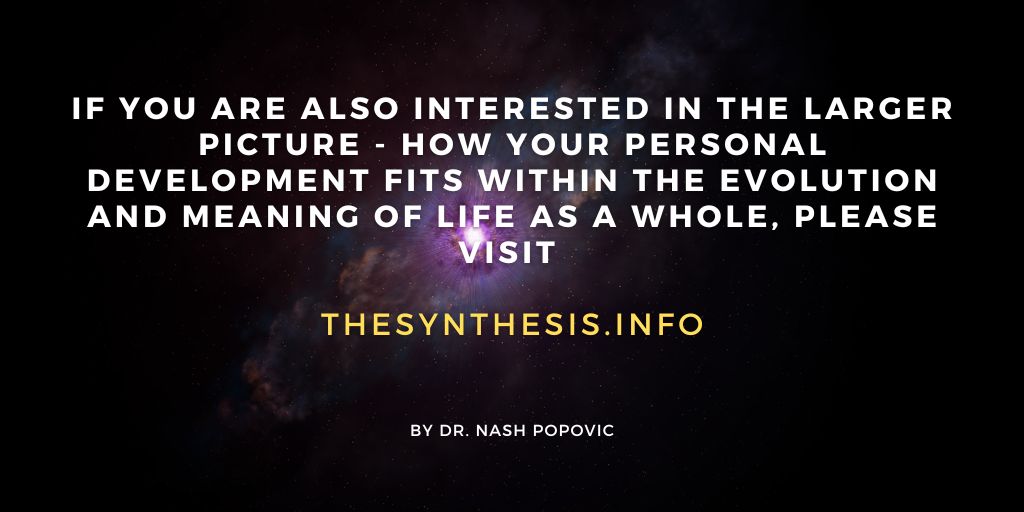36. Deciding
Without the possibility of choice and the exercise of choice a man is not a man but a member, an instrument, a thing.
Archibald MacLeish (American poet and writer)
In this area, we will focus first on dealing with three scourges of decision making: impulsiveness, procrastination and agonising over decisions. Then, we will see how we can utilise our various faculties to make good decisions. Before going further though, it may be useful to pick a decision you need to make and apply the following as you go along.
The paradox of choice
There is a paradox between choice and its realisation: we may be free to choose, but making a choice inevitably leads to renouncing choice – for every yes there must be a no, each decision eliminates other options. For example, let’s say you have £50 to buy a pair of shoes. You can probably buy thousands of shoes for this money. However, once you make your decision and buy a pair, you have forfeited all the others. It is not surprising that the possibility of making a wrong choice can raise anxiety. This, in turn, can affect the capacity to tolerate a ‘pre-decision’ state, and lead to impulsiveness, procrastination or agonising over decisions. None of these are helpful. Rushing into decisions can momentarily reduce anxiety, but it may lead to lasting regrets. Procrastination often results in a drift – a decision made by not deciding, which usually turns out not to be what you really want and is sometimes worse than any choice you have had. Agonising over a decision is time and energy consuming and, in fact, increases anxiety. Luckily, you can take some steps to take control over these three:
- Time your decisions: to avoid impulsiveness make sure that you take time before you make a decision; to deal with procrastination, set time aside for making a decision; to reduce agonising, set the time limit. This is an example of doing all of these in one sentence: ‘I will sleep it over, think about it first thing tomorrow mooring, and make my decision by midday’.
- Put your decisions in perspective: the outcomes of wrong and right decisions may not be so apart as you think. By and large, each choice provides an opportunity to gain and lose something. Also, learning from a ‘wrong’ decision can sometimes be more valuable than the gains from a ‘right’ one. Of course some choices may be better than others, but this is usually not black and white – whatever you choose, there will be some challenges and some opportunities ahead. Many decisions may not deserve much of your time. It is often better to aim for a ‘good enough’ choice than to try to find the best one, as the time spent on deciding may be more valuable.
There are some decisions and their consequences that are very important though. Let’s see what can help us in such cases.
Making decisions well
Preparation is an essential first step. Do not suppose that you know all you need to know to make your decision. Ask yourself: “What do I assume here?” and gather more information. And do not succumb to a temptation to make choices while still preparing. Take your time and when you are ready, use these faculties to help you make your decision with confidence:
Perception can involve several sources:
- Your perception of the situation is important, so make sure that it is not coloured by wishful thinking or inflated concerns. Let’s use a simple example to illustrate this point: your dilemma is whether you should go out or stay in and do some work. If you catch yourself imagining that the evening out will be best ever or worrying that you will lose your job if you don’t do that work, pause and ask yourself how realistic this is.
- The perception of others: advice from others may be very helpful and it is good to be open-minded in this respect. However, the final decision must come from you, not from somebody else. After all, others can be wrong too.
- Unconscious perception: some people look for clues in dreams or signs to help them make a decision. Taking these sources as mystical messages may be misleading, to say the least. On the other hand, your mind is always looking for clues related to an immediate problem, so such things can be regarded as intermediaries that can help you communicate with your unconscious. From this perspective, anything can be a ‘sign’ but it does not have universal meaning. What is seen as a sign and its interpretation can differ from person to person, and even from situation to situation. Furthermore, the same sign can have a different meaning in a different situation because the clue is not in a sign, but in the way you interpret it.
Thinking can be involved in considering the following:
- Outcomes: compare outcomes of each possibility, taking into account long-term consequences too (you can write down their advantages and disadvantages to make it clear).
- Priorities: ask yourself, ‘Why do I want to do X? Why do I want to do Y? Which one is more important?’
- Effects of each decision on your own values and others (i.e. how each choice with affect those you care about).
Feelings matter too. However, it is important to distinguish between taking into account your feelings and being driven by them. To avoid the latter, imagine that various options have already happened and examine how you feel in each case – you can feel very differently before and after an event. To use our example, think about how you feel now about going out as well as staying in working, and then how you would feel tomorrow if you went out and if you stayed in and did some work.
Intuition can help particularly when there is not enough time or information for deliberation, but there are a number of reasons why we should be careful not to follow it blindly:
- It is difficult to separate intuition from feelings, desires or wishful thinking, so be aware that what may look like an intuitive insight can be something else.
- Intuition seems to be affected by the state of mind we are in, so if you are in a negative state (e.g. dominated by guilt, fear or anger) your intuitive decision can become a self-fulfilling prophecy, leading to a negative outcome.
- Intuition seems to relate only to what we are focused on, rather than a broader picture and far-reaching consequences.
Systematic testing seems to be the best way to develop intuition. You can record your intuitive hints (without necessarily following them) and compare the notes with the outcome. After a few times, try to figure out what makes a difference between intuitive hints that have been correct and those that have not.
Experiment with the above – try deliberately to add those faculties to your decision making repertoire that you don’t normally use, and see if it improves your decisions and how you feel about them.
Incubation
When making a complex decision, combining these faculties is, of course, the best. Research[i] suggests that allowing a period of incubation can also be a good idea: after such deliberations temporarily shelve making your decision to let your unconscious do the work. Just a few moments of silence may be enough. Let’s consider, for instance, your choice of what career move to take. This is an important decision that may affect the rest of your life, and is worth careful consideration. You can seek advice from others, you can weigh various options, you can consider what you would like and enjoy long-term, and you can even have some intuitive insights. You may then leave it for a while, let all these voices settle – don’t worry if some of them seem to contradict each other – and allow your decision to emerge spontaneously from the ‘inner democracy’ inside your mind (see the area Personal Freedom). When that happens, there is no point in procrastinating. Resolve to do your best whatever your choice is and go on with it!
No time to go through all this? If you need to make a snap decision it is usually wise to choose an option that leaves other doors open (e.g. ‘can I still go out after I finish my work?’ / ‘can I still finish my work after I go out?’)
______________________________________________________________________
[i] Miller, G. (2006) ‘Tough Decision? Don’t Sweat It’ in Science, 17 February 2006, 311 (5763), p.935.

